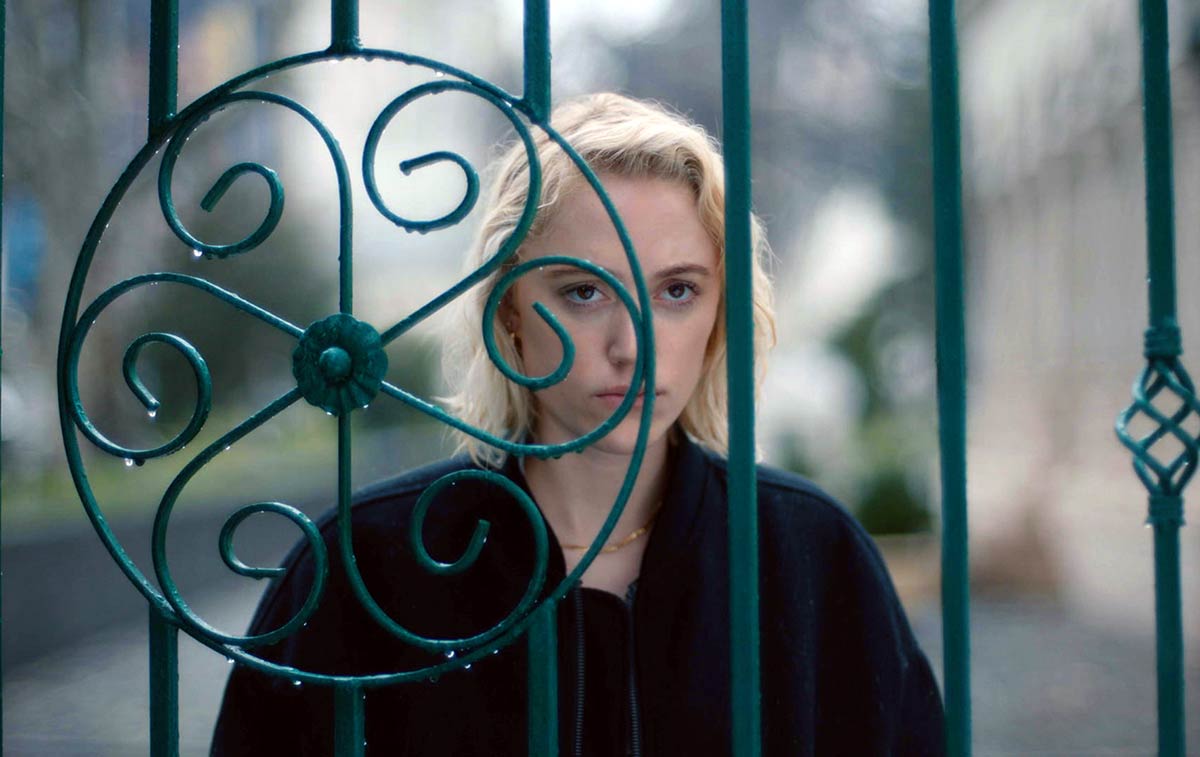American tourists spooked out by what they see on their visit to a European country will always be a valid premise for a film. The same goes for movies concerned with voyeurism, whether our protagonist is the one watching or the one being watched — though they usually are both, as is the case in Chloe Okuno’s “Watcher.” Playing in the U.S. Dramatic Competition at this year’s Sundance Film Festival, this new thriller brings together these two enticing premises, following a young American couple that relocates to Bucharest, Romania.
READ MORE: Sundance 2022 Preview: 20 Must-See Movies From The Festival
Maika Monroe plays Julia, the aimless wife to Karl Glusman’s Francis, who works in marketing and is the most comfortable with the move, in large part because he speaks fluent Romanian. Meanwhile, Julia’s efforts to learn the language and make this place her new home are consistently undermined, as both her husband and his office friends make no effort to include her in their conversations. She is utterly alone and alienated, and while he goes to the office, she spends most of her days isolated in their new apartment, wary of going out and meeting yet more unhelpful and unkind people.
The apartment is comfortably big and tastefully decorated in subtle, neutral tones, the very opposite of the cliched Eastern European city flat with crumbling paint, garish colors, and sweating walls. Yet this interior stands in sharp contrast to the more dilapidated and threatening outside appearance of the building and neighborhood, and Julia, lonely and bored, appears to be drawn to the view from her very big living room window more than she is by anything inside her cozy place. She spends some time standing by that rectangle of light during the day, but it is after sundown that the vantage point reveals its powers — when tenants are in, and their lights are on, they just need to have their curtains open for their whole lives to be exposed. Julia is only casually interested in that fact, and if she seems to be staring a little longer than others would, it is only because she has nothing else to do. However, before she even has the chance to indulge in some actually fun people-watching, she turns sour on the idea: this voyeurism is a double-edged sword. While idly looking out her window, she spots a frightening silhouette in an apartment from the building opposite, intently staring in her direction.
The sustained shots that Okono and director of photography Benjamin Kirk Nielsen privilege so far in the film suddenly take on a more frightening aura, underlining the fear in seeing something just well enough to be worried, but not clearly enough to be sure. No matter how long Julia looks back at the figure, its face never becomes clearer, and the person never tries to hide. Her seeing this shadowy apparition brings her no comfort, only fear.
It’s a powerful visual concept, but one which the film chooses to, somewhat inexplicably, move away from by then throwing doubt on the idea that Julia is being watched or in danger at all. From then on, the tension is divided between worrying for Julia’s safety, and for her sanity— while at the cinema, she becomes suspicious of a man sitting in the shadows; at the supermarket, she is convinced that she is being followed. When she tells Francis, he is the first to doubt her. He points out that she’s the one who appears obsessed with a stranger — adding the misogynistic impulse to dismiss women’s fears to the list of potential dynamics Julia might, in fact, be wrestling with.
This not knowing could make for powerful suspense, but the film is too unsure whether it wants to keep its audience completely in the dark or not. Monroe does a lot to sustain what tension there is during the more perfunctory moments, delivering a seemingly effortless performance as a dejected young woman who approaches both her confusing new circumstances and the mystery that occupies her thoughts with calm and pragmatic patience, as well as curiosity. But with scenes suggesting too many possible explanations on the one hand, and others leaving little room for doubt, the moment-to-moment stakes feel blurred, in contrast to the film’s sharp cinematography and blunt editing. The result is an initially compelling mystery that becomes more predictable as it progresses, until an ending that feels both like a cheap last-minute attempt to steer the film into a more topical direction and hard to care about. [C]
Read along with all our coverage of the 2022 Sundance Film Festival.





